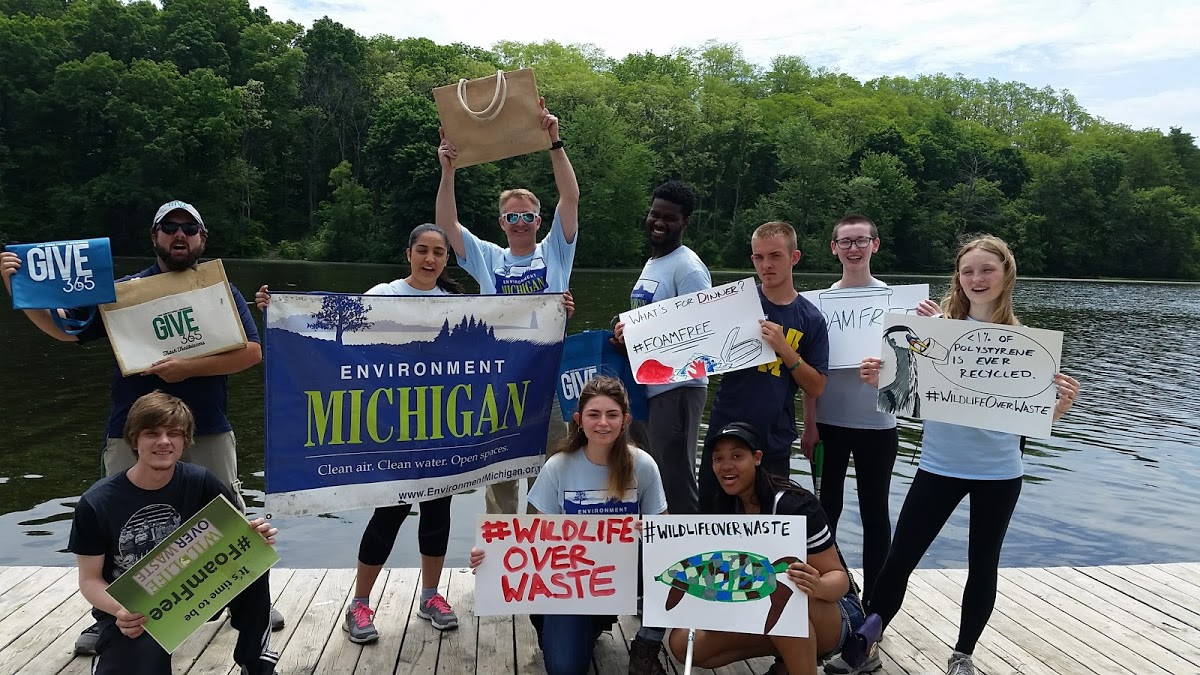Nathan Murphy
Plastic pollution is killing our wildlife. That’s why Environment America is announcing a new campaign to ban harmful, single-use plastic food containers in Michigan.

Polystyrene, commonly known as styrofoam, is one of the worst and most common types of plastic. According to the EPA, Americans throw out 70 million polystyrene foam cups every day, and that doesn’t include bowls and takeout containers. Tons of our discarded plastic ends up in the environment, on our lands and in our waterways. More than 8 million tons end up in our oceans every year, the equivalent of five plastic bags for every foot of coastline.
Plastic doesn’t biodegrade, but instead breaks down into tiny pieces called microplastics which have been found ingested by hundreds of different species. So much plastic pollution has escaped into our environment that there are multiple giant floating masses of plastic in the ocean, including one seven times the size of Michigan in the north Pacific.
“We’re not only polluting our oceans, we’re also polluting our Great Lakes and inland waters like the Huron River. Our plastic pollution problem starts here, it hits our local environment first where it fouls our beaches and waters and harms wildlife,” said Nathan Murphy, State Director for Environment Michigan.
Through August, Environment America canvassers will be knocking on over 1.2 million doors, having over 690,000 conversations, and collecting over 308,000 petitions to educate consumers, business owners and decision-makers about plastic pollution, and urge them to support a statewide ban.
The Wildlife Over Waste campaign will build on local efforts taking place throughout the country. Already, more than two hundred municipalities from coast to coast have banned polystyrene containers in some form. To eliminate these harmful and unnecessary plastics once and for all, states need to do start doing the same.
“With the many, safer alternatives that exist today, we don’t need polystyrene, or any single-use plastic for that matter,” said Alex Truelove, Zero Waste Campaign Director. “We need to ban these unnecessary and harmful plastics that are destroying wildlife in order to shift towards better alternatives.”
